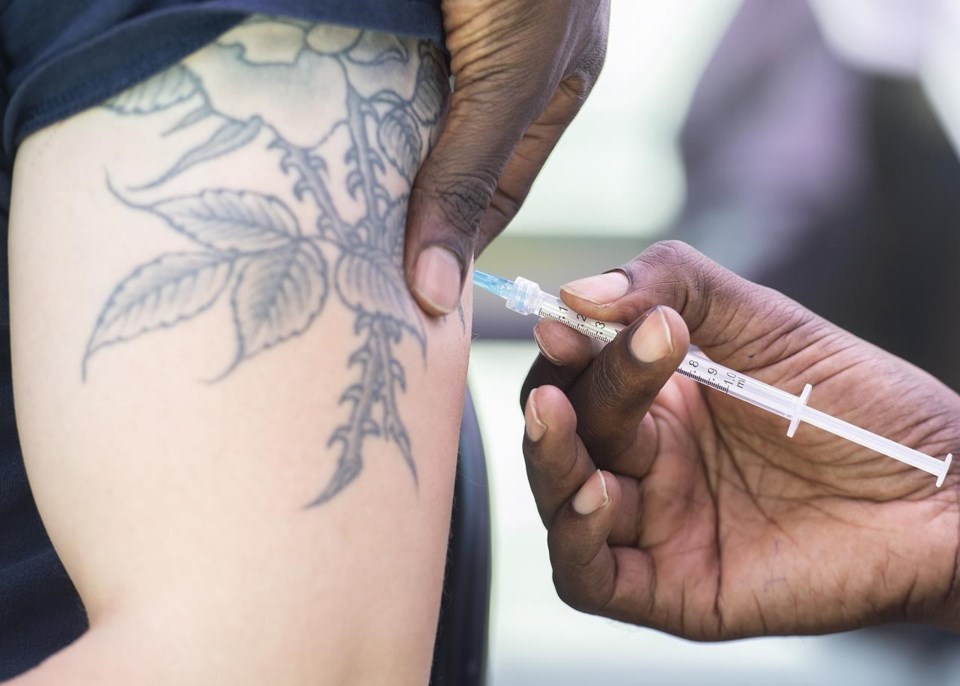VICTORIA — The British Columbia government says monkeypox vaccine is being made available to eligible patients in most areas of the province.
A statement from the Ministry of Health says cases of the virus are low in B.C., but some community transmission has been identified, so the vaccine is being offered in the Vancouver, Coastal, Fraser, Island and Interior health regions.
Priority is being given to patients in the Lower Mainland, where most infections have occurred, and contact tracing is underway to identify anyone else who could benefit from the vaccine.
The ministry says that as of Wednesday, 61 cases of monkeypox had been identified in B.C., with 54 in Vancouver Coastal, three in Fraser Health and four on Vancouver Island.
Of the 14,480 doses of vaccine B.C. has received, the ministry says about half had been administered to high-risk people by Monday.
The ministry says monkeypox, a member of the same family of viruses that causes smallpox, does not spread easily between people and all identified cases in the province have involved prolonged skin-to-skin contact, which is the suspected primary source of infection.
So far, B.C. has received 14,480 doses of vaccine, and, as of Monday, about half that number has been administered to high-risk people.
The Public Health Agency of Canada has urged gay and bisexual men to practise safe sex and limit their number of sexual partners to lower the risk of contracting the disease, which spreads primarily among men who have sex with men.
Monkeypox can occur in two stages, with flu-like symptoms appearing first, followed by a rash, usually with sores or blisters, though many people only get the rash.
The Centers for Disease Control and Prevention in the United States says 21,148 cases of monkeypox have been reported globally, with most of the cases identified in 71 countries, including Canada, that have not historically reported the illness.
The World Health Organization director-general last week declared the escalating global outbreak a public health emergency of international concern.
This report by The Canadian Press was first published July 29, 2022.
The Canadian Press



